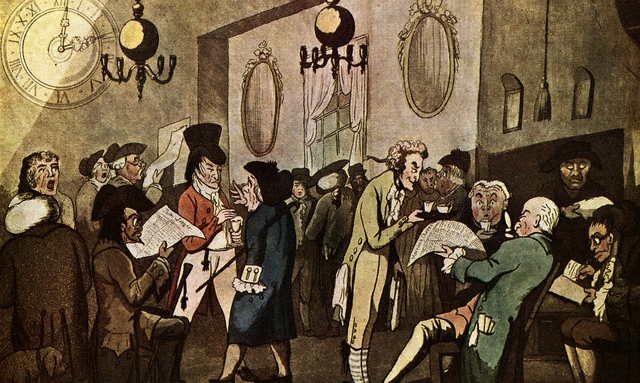Those on the outside have the most to complain about. The political party in the minority criticizes the governance of the majority. The losing team bemoans unfair odds and an unbalanced field. The little guy speaks of what he would do differently if only he were in charge. And, increasingly, we Christians grow frustrated with the decline of culture. The rhetoric is arresting. We are engaged in a “culture war,” a “battle for society,” a “struggle for life.” But, in all endeavors, we must have an end in mind. What exactly should ours be?
Well, to begin with, neither the Church nor her members exist to save culture in some abstract sense. The Church exists to save persons. Individuals. You and me. This is possible in any and every culture, albeit with varying degrees of difficulty. It was possible to follow Christ in both pagan Rome and under the Holy Roman Emperor. We can grow in virtue, both natural and supernatural, without the aid of culture. The state does not have to endorse the practice of contemplating the truth in order for us to undertake it. While it may become difficult (just ask Socrates), the end goal remains the same: salvation and the growth in virtue. So, is culture of no importance at all for a Christian?
I don’t believe so, although it is still not of the utmost importance. We have the mission given to us by Christ to “preach to all nations.” We preach in order to teach truth and bring others to salvation in Christ. However, there are things that hold us back from receiving this truth. One will not be disposed to follow the teachings of Christ if one lives a life in direct contradiction to the Gospel. Certain practices must be abandoned if one is to be baptised and brought into the Church. We must cut that which holds us back in order to grow.
I think it is here that a discussion of culture can begin to take place. Culture is the atmosphere of a specific time and place that encourages certain customs and behaviors. Ideally, this culture should encourage virtuous and right living. But, when a culture encourages harmful behaviors, it makes it more difficult for man both to flourish naturally and to come to conform his life to Christ. For example, as Pope St. John Paul II argued in Fides et Ratio, our modern culture has abandoned a belief in the power of reason. This is harmful to all. A belief in the power of reason is necessary for man to come to know truth and seek to follow it naturally. Furthermore, without a trust in the capacity to reach truth, it is almost impossible to accept a God who is Truth itself.
In our modern times, it is easy to predict that doom is nigh. However, one must first remember that our primary goal is life in Christ. The goal of our lives is not to save the culture. It is to be virtuous people. Culture can be used as a tool for growth, but it is not an end in itself. Even if all collapsed around us, we could still find someplace to read a good book, pray to God, and grow in virtue. This is not to say that culture is of no importance. As Pope St. John Paul II showed, it is good for us to engage with culture, and in some cases, to save it from itself. But, we should first seek to be virtuous ourselves, realizing that this is our end regardless of the culture around us.
✠
Image: William Holland, Lloyd’s Coffee House, London







